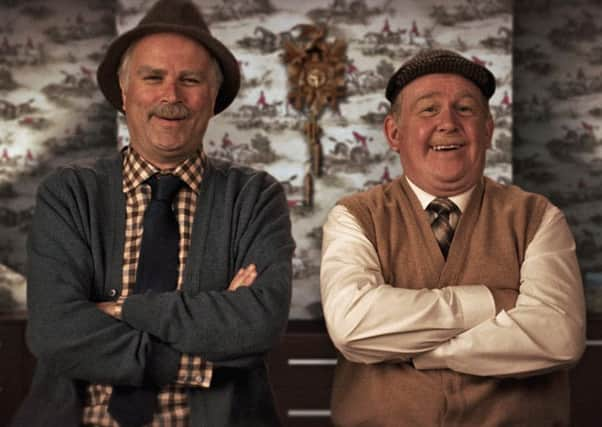Brian Ferguson: BBC investment spells exciting times for arts


And there were dire warnings of the kind of reception to expect at Holyrood for the man who seemed to have finally killed off the so-called “Scottish Six.”
Well, things did not quite turn like that. He took the sting out of his anticipated grilling by setting out what he described as the biggest single investment in Scottish broadcasting for 20 years.
Advertisement
Hide AdIt is hard to recall another announcement which has involved quite so much political back-pedalling as the one made to the BBC Scotland staff at Pacific Quay on Wednesday. While all credit should go to First Minister Nicola Sturgeon for swiftly recognising how much had been done, after years of frustration and demands, she had little choice. Much of what has been delivered was set out in her speech to the Edinburgh International Television Festival a year and a half ago.
But Lord Hall’s announcement went much further than any politician in Scotland had predicted or expected - with news of a new channel dedicated to Scotland, an hour-long “integrated” programme devoted to Scottish, UK and internationsl news as its centrepiece, and the creation of 80 new jobs for journalists to work on it. Over and above the £30 million budget for the new channel, a further £20 million was promised annually for the commissioning of new drama and factual programmes for the UK network.
The extra resources for news and current affairs announced by Lord Hall “took most people by surprise” at Pacific Quay, according to an NUJ statement admitting he had delivered “great news” to staff. The new channel will not launch until the summer of 2018, at the earliest, giving the BBC plenty of time to get it right, particularly over the so-called “Scottish Nine”.
STV, which is creating 20 new jobs at the moment, has had a much shorter run-in for its own “Scottish Seven” news bulletin, which is due to be launched within weeks.
But if this is suddenly an exciting time for Scottish journalism, with the Brexit and Indyref 2 wagons gathering speed, Lord Hall’s announcement has also fired the imaginations of many of those working in the creative industries.
While that £20 million investment for network shows may be well short of what is required to bring Scotland into line with Wales, where Doctor Who is made, it is certainly a very good starting point for the new era, and an exciting new blank canvas is available for drama writers, directors, producers, editors and commissioners to work from.
Advertisement
Hide AdA new long-running drama series could join River City, Shetland and BBC Alba’s Bannan. Documentary makers can start developing ideas for hard-hitting investigations. The prospect of a regular culture show on TV for the first time in recent memory has moved a lot closer. And the gauntlet has certainly been thrown down to comedy writers to try to emulate the success of Still Game.
Intriguingly, the BBC announcement will also cast a spotlight on funding bodies like Creative Scotland, which have been criticised for failing to support the film and television sectors enough since Scottish Screen was wound up in 2010. Then there is the sorry saga of the lack of a permanent film studio in Scotland.
If that project was to finally win the backing of ministers over the next few months, then momentum from the BBC’s announcement really would begin to gather pace.